NEWS: Lawmaker wants to find out more about how S.C. spends money
BRIEFS: Women’s group fears ‘police state’ in proposed abortion bill
TALLY SHEET: Legislative hopper grows to 1,400 measures
COMMENTARY, Brack: Let’s confront the ghosts of our past and calm things down
SPOTLIGHT: S.C. Senate Democratic Caucus
MY TURN, Bass: Remembering the Orangeburg Massacre, 51 years ago today
FEEDBACK: On pay equity, Trump, newspapers
MYSTERY PHOTO: This should be an easy one
S.C. ENCYCLOPEDIA: Vertamae Grosvenor
NEWS: Lawmaker wants to find out more about how S.C. spends money

By Lindsay Street, Statehouse correspondent | As government coffers grow in the rebounded economy, one state lawmaker wants a task force created to evaluate spending — a move she says could divert state funds into other needed reforms, such as education.
“When the economy is doing well and the state is doing well, the state’s growing … what tends to happen is that as our revenues increase, our spending increases,” Moncks Corner Republican Rep. Sylleste Davis told Statehouse Report.

In January, Davis introduced H. 3224, a bill described as the “South Carolina Government Efficiency Act.” It has been referred to the House Judiciary Committee and has yet to be scheduled for its special laws subcommittee.
Davis said her bill aims to answer these questions:
“Are we spending the taxpayer money on the right things? And I think that the only way to figure that out is to on a periodic basis go through all the agencies that receive taxpayer funds and figure out are these agencies operating as efficiently as possible, are they collaborating with other agencies to be efficient, and are they making a concerted effort on a regular basis to reduce the cost of government?”
A proposed 15-member task force would be comprised of lawmakers, business leaders and state agency leaders.
Any money saved could go to state needs, such as education reform, or it could be returned to taxpayers, Davis said.
“Either way is good. And, in some cases, you don’t really know the best way to spend the money because we haven’t really done a lot of housecleaning.”
Davis said while House budget writers take state agency budget requests annually to help build the state budget, those efforts are not focused on efficiency and baseline services.
Following in the footsteps of others
The idea proposed by Davis for South Carolina isn’t novel or very new. More than a decade ago, Gov. Mark Sanford pushed for performance evaluations of state government.
![]() Through the years, a handful of other states have some form of government-efficiency oversight. In Texas, for example, a Legislative Budget Board has appeared in the state in various forms since the 1970s. The board provides a “system of performance audits and evaluations intended to provide a comprehensive and continuing review of the programs and operations of each state institution, department, agency, or commission,” according to spokesman R.J. DeSilva.
Through the years, a handful of other states have some form of government-efficiency oversight. In Texas, for example, a Legislative Budget Board has appeared in the state in various forms since the 1970s. The board provides a “system of performance audits and evaluations intended to provide a comprehensive and continuing review of the programs and operations of each state institution, department, agency, or commission,” according to spokesman R.J. DeSilva.
Findings from these Texan performance reviews and related policy analyses provide information and options for statutory or budgetary changes. DeSilva offered these examples:
- In 2017, 52 performance reviews and evaluations were provided to the Texas legislature, 32 of which included options for statutory or budgetary changes. The legislature acted upon options identified in 16 of the 32 reports that included options.
- In 2013, the legislature incorporated analysis from reports in the budget bill and 22 other pieces of enacted legislation. The fiscal impact of these was estimated to be a net cost savings of $17 million in General Revenue Funds.
![]() Davis said her proposal was based on the Florida Government Efficiency Task Force, which was established in 2007.
Davis said her proposal was based on the Florida Government Efficiency Task Force, which was established in 2007.
“That’s kind of where I started,” Davis said. “I googled ‘state government efficiency’ and Florida popped up.”
Its 15-person task force meets every fourth year and submits recommendations to the chairman and vice chairman of the Legislative Budget Commission, the governor, and the chief justice of the Supreme Court. According to the task force’s documents, the goal is to achieve more than $3 billion in savings over four years.
Legislative and gubernatorial staff in South Carolina were unfamiliar with other similar program enacted in South Carolina, with the exception of one: The Governor Efficiency and Accountability Review (GEAR) Commission under then-Gov. Mark Sanford.
The gubernatorial commission regularly reviewed state agencies and helped Sanford develop a restructuring plan that then became part of his executive budget every year. In his 2011 proposed executive budget, Sanford urged lawmakers to follow through with GEAR’s recommendations to help streamline government:
“To date, only 16 out of the 61 of the GEAR Committee’s recommendations have been adopted, which means that the General Assembly has ample opportunity to obtain cost savings without cutting essential governmental services by adopting the remainder of the recommendations,” the 2011 executive budget stated.
Proposal seeks more support, key figures learning about it
[updated] Davis said she has met with the Republican governor on the bill and that he was “on board with it.” Gov. Henry McMaster’s spokesman, Brian Symmes, did not return requests for comment prior to publication. After the story was published, however, Symmes said the governor “supports any effort to make state government more efficient and more effective for the people of the state.” Late last month, Davis picked up an additional sponsor, but the bill remains backed solely by Republicans: Reps. William Scott Cogswell of Charleston and Anne J. Thayer of Anderson.
House Majority Leader Gary Simrill, R-York, did not respond to requests seeking comment on the bill. House Speaker Pro Tempore Tommy Pope, R-York, said he was not familiar with the bill.
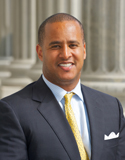
House Minority Leader Todd Rutherford, D-Richland, also said he was not familiar with the bill or such task forces. He said, however, that he doubted state agencies had much fat to trim.
“I don’t think the government is operating in an inefficient place now,” Rutherford told Statehouse Report. “If I had to critique how South Carolina has spent our money, it is that we have exempted too many things and we don’t take in enough.”
Rutherford agreed with Davis that using any money saved by such a task force should be put toward something like education reform.
“There are needs that South Carolina has that we got to meet that we currently are not,” he said.
- Have a comment? Send to: feedback@statehousereport.com
NEWS BRIEFS
Women’s group fears ‘police state’ in proposed abortion bill
By Lindsay Street, Statehouse correspondent | A bill seeking to criminalize abortion so that South Carolina women and doctors could be charged with murder has drawn the ire of the S.C. Women’s Rights and Empowerment Network (WREN).
 “The so-called Personhood Act would turn South Carolina into a police state for women, health care professionals, and any other person involved in pregnancy care or prevention. Before she is pregnant and at any point during pregnancy, a woman could be criminally liable if she uses certain forms of contraception, has a miscarriage, suffers from health complications, or has an abortion. The bill is an assault on the health, dignity, and freedom of South Carolinians,” Ann Warner wrote in a statement to Statehouse Report.
“The so-called Personhood Act would turn South Carolina into a police state for women, health care professionals, and any other person involved in pregnancy care or prevention. Before she is pregnant and at any point during pregnancy, a woman could be criminally liable if she uses certain forms of contraception, has a miscarriage, suffers from health complications, or has an abortion. The bill is an assault on the health, dignity, and freedom of South Carolinians,” Ann Warner wrote in a statement to Statehouse Report.
S.C. Sen. Richard Cash, R-Anderson, this week introduced S. 485, which is similar to a version introduced and failed in the previous session of the legislature. In 2018, the debate over his bill in the Senate sidelined other bills for several weeks. Spartanburg Republican Rep. Josiah Magnuson introduced the proposal’s House version, H. 3920.
In a press conference attended by Republican Gov. Henry McMaster, Cash said:
“It’s an intention to recriminalize the killing of unborn babies in this state … When you kill an unborn baby in the womb, that doctor is committing murder.”
In other news:
Journalism in S.C. Lander University will host a panel discussion on journalism in South Carolina from 5:30-7 p.m. Feb. 12 at the Abney Cultural Center Auditorium. Panelists include Seanna Adcox, assistant Columbia bureau chief for The Post and Courier; Andy Brack, publisher of Statehouse Report; Gavin Jackson, host of “This Week in South Carolina” and the podcast “South Carolina Lede” for SCETV; Russ McKinney, reporter for South Carolina Public Radio; and Andy Shain, Columbia bureau chief for The Post and Courier. The panel will be moderated by Brent Nelsen, professor of political science at Furman University and chair of the SCETV Commission. More information.
Toomey gets first nod. The Senate Medical Affairs Committee unanimously approved Dr. Rick Toomey to lead S.C. Department of Health and Environmental Control, where he was a previous board member. Appointed by Gov. Henry McMaster, Toomey now needs to have his appointment confirmed by the full Senate. Read more.
Weekly update on Palmetto Priorities
 Throughout the legislative session, we’ll provide you relevant updates related to our list of Palmetto Priorities, which are 10 big policy areas where major progress is needed for South Carolina to escape the bottom of lots of lists. Over the last week:
Throughout the legislative session, we’ll provide you relevant updates related to our list of Palmetto Priorities, which are 10 big policy areas where major progress is needed for South Carolina to escape the bottom of lots of lists. Over the last week:
Education. A panel of the House Education and Public Works Committee will convene for a special “after hours” meeting 4:45 p.m. Feb. 12 in room 110 of the Blatt building to hear from those wishing to speak on the education overhaul bill, H. 3759. See the agenda here. Similarly, Senate Education Chair Greg Hembree, R-Horry, told Statehouse Report this week that his committee will hold public hearings around the state on the bill, though those dates have yet to be announced.
Prisons. Senators say they will not move quickly on round two of prison reform in the state, saying it needs more public input. Members of the Senate Corrections and Penology Committee met Thursday to discuss prison reform bills, but said they need more time before presenting the measures to the full Senate. Read more. Additionally, newly introduced H. 3919 (Collins) seeks the “Youth Sentencing Act” to prohibit life imprisonment for anyone under 18 when a crime was committed, with several provisions. S. 471 (Shealy) is related and seeks to keep people younger than 18 from solitary confinement and to keep them from getting life sentences without the possibility of parole, with several provisions.
Looking ahead
Click below for other items coming up in the Statehouse:
- House calendar
- Senate calendar
- Have a comment? Send to: feedback@statehousereport.com
Legislative hopper grows to 1,400 measures
![]() The legislative hopper now includes more than 1,400 bills and resolutions filed during this session. Members of the General Assembly filed 128 new bills and resolutions over the last week. The majority of newly-introduced measures were honorary resolutions by Rep. Alan Clemmons, R-Horry, that recognized new Eagle Scouts. Among the highlights:
The legislative hopper now includes more than 1,400 bills and resolutions filed during this session. Members of the General Assembly filed 128 new bills and resolutions over the last week. The majority of newly-introduced measures were honorary resolutions by Rep. Alan Clemmons, R-Horry, that recognized new Eagle Scouts. Among the highlights:
IN THE HOUSE (see all House bills)
Sexual violence on campus. H. 3921 (Norrell) seeks to expand ways for students and employees at colleges to report sexual assault, harassment, dating violence or staling on campus, including defining terms, with several provisions. H. 3922 (Norrell) is related and seeks to keep colleges from taking disciplinary action for violations of codes of conduct for students who make good faith reports of being victims or witnesses to criminal sexual conduct, with several provisions.
Magistrate reform. H. 3843 (Bamberg) seeks to improve salaries, education and more for the state’s magistrates, with several provisions.
Child safety. H. 3915 (Kimmons) seeks to emphasize that during child abuse and neglect proceedings, the state DSS must use child welfare and safety as the sole basis for recommendations and decisions, with other provisions.
Youth sentencing. H. 3918 (Collins) would give discretion to family courts on whether children 14 or older were to be placed on the sex offender registry, and several other provisions. S. 468 (Shealy) is similar. H. 3919 (Collins) seeks the “Youth Sentencing Act” to prohibit life imprisonment for anyone under 18 when a crime was committed, with several provisions. S. 471 (Shealy) is related and seeks to keep people younger than 18 from solitary confinement and to keep them from getting life sentences without the possibility of parole, with several provisions.
Abortion. H. 3920 (Magnuson) effectively seeks to ban abortions in S.C. by defining “preborn” babies as persons with a right to life, with several provisions. S. 485 (Cash) is similar.
Riley Reach. H. 3928 (Sottile) seeks to rename a portion of a navigational channel along the Charleston waterfront as “Riley Reach” to honor former Mayor Joe Riley.
Residency requirement. H. 3933 (Crawford) seeks to establish a residency requirement for candidates for local office that are elected from specific districts.
IN THE SENATE (see all Senate bills)
Domestic abuse. S. 469 (Shealy) seeks to revise definitions to the state’s Protection from Domestic Abuse Act.
Fire Marshal. S. 481 (Alexander) seeks to transfer the state Fire Marshal’s office to the Department of labor, Licensing and Regulation, with several structural and organizational provisions.
Nonprofit reporting. S. 491 (Corbin) seeks to require nonprofit organizations that receive money from the General Assembly to file a report and agree to be audited, with several provisions.
BRACK: Let’s confront the ghosts of our past and calm things down
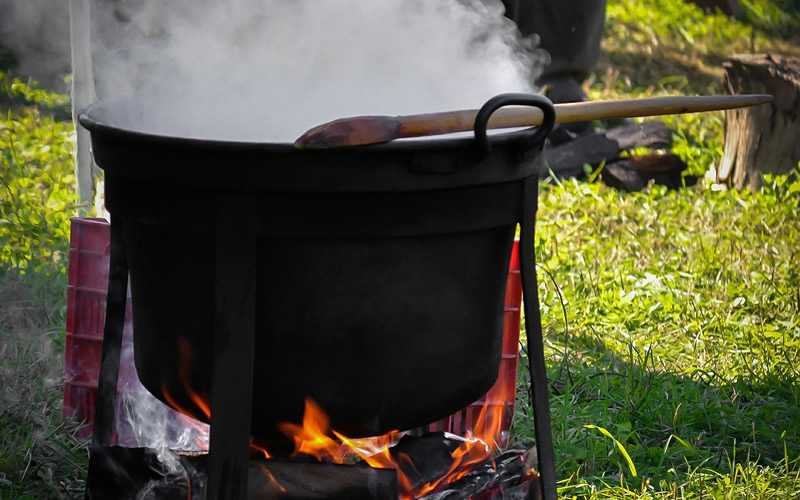
By Andy Brack, editor and publisher | The ghosts of our past are boiling in a cauldron that is spewing fury and distress across America like lava jolting from a volcano.
 And just like climate change, many deny or ignore how different segments of our society are colliding, getting hotter and hotter week after week. There’s an increasing sense that America is out of control, preferring dysfunction and confrontation to life, liberty and the pursuit of happiness.
And just like climate change, many deny or ignore how different segments of our society are colliding, getting hotter and hotter week after week. There’s an increasing sense that America is out of control, preferring dysfunction and confrontation to life, liberty and the pursuit of happiness.
Leaders in blackface. #MeToo revelations. White nationalist rallies. Priests abusing kids. A high school student staring down a native American. Deadly shootings at schools, churches and synagogues. “Gay conversion” therapy. All-white social and country clubs.
America is on edge, seemingly leaderless as ghosts seem to confront society increasingly to cause deterioration of values that have united us in the past. It’s as if there’s something new every day or three to ratchet up the heat on the cauldron which, in turn, predictably responds by launching more hot venom from the ghosts.
Don’t things seem more and more out of control? More divided than ever? Less hopeful?
You don’t have to look hard or far to find evidence of the haughty ghosts of race, discrimination, paternalism and privilege that are roiling our country.
Just this week in South Carolina, a Republican state senator working to reform the state’s backwards education system said “someone on social media ‘threatened to put my neck in a noose’ because he did not allow public testimony” during an organizational meeting on a bill that would raise teacher pay, consolidate small school districts and get rid of some of the incessant testing students have to take.
And on the same day, some 20 black lawmakers walked out of judicial elections alleging discrimination after a white attorney beat a longtime black state judge 87-73 for a seat on the state Court of Appeals. “Shame on South Carolina. Racism still lives here!” said state Rep. John King, D-York. “Until we cure what is happening in our State House, we can’t expect our citizens to do any better.”
So what do we do about this bubbling stew of confrontation? It would be great to have the ghostbusters on the scene, but it’s not going to be that easy. We’re actually going to have to bust the ghosts of the past ourselves if we want to calm the cauldron. We’re going to have to start listening better and talking with each other, instead of at each other.
“It’s as if we need to have a Reckoning Day and just confront all of this stuff,” said one thoughtful man who is trying to better understand America’s distress.
If it could only be done in a day. In South Carolina after the eras of slavery and Jim Crow, followed by dulled acceptance of things being the way they are because they’ve always been that way, we might need a Reckoning Year — or Decade. Just look at how many still don’t have much to say about the Orangeburg Massacre where three students died and 27 were hurt 51 years ago this month.
To get started, maybe we should confront our individual ghosts and make amends with people we’ve hurt. We’ve all got things in our past that we’re not proud of. Perhaps embracing and asking for forgiveness is a way to start cooling the cauldron.
But as a society, we’ve got to start responding to threats from the ghosts of days past, too.
As our friend told us, “a society or group needs to acknowledge bad behavior on the institution’s behalf. I’m certainly not a full-throated fan of Baptists, Germans or white South Africans, but it seems to me that they’ve made an honest effort to confront their past. We’ve only just begun it in South Carolina by seeing our Confederate statues with new eyes — or at least that’s how I feel.”
Let’s pick active listening, reason, community discussions and compromise over confrontation and stubbornness. Let’s choose to start healing, not to continuing to wallow in the past.
Doing nothing to heal South Carolina and America is not an option. Because if we do nothing, the ghosts win.
- Have a comment? Send to: feedback@statehousereport.com
SPOTLIGHT: S.C. Senate Democratic Caucus
 The public spiritedness of our underwriters allows us to bring Statehouse Report to you at no cost. This week’s spotlighted underwriter is the S.C. Senate Democratic Caucus. Organized almost 25 years ago, the Caucus has played an important role in many of the historic issues facing our state. As a vibrant minority party in the Senate, its role is to represent our constituents and present viable alternatives on critical issues. The S.C. Senate Democratic Caucus remains a unique place for this to occur in our policy process.
The public spiritedness of our underwriters allows us to bring Statehouse Report to you at no cost. This week’s spotlighted underwriter is the S.C. Senate Democratic Caucus. Organized almost 25 years ago, the Caucus has played an important role in many of the historic issues facing our state. As a vibrant minority party in the Senate, its role is to represent our constituents and present viable alternatives on critical issues. The S.C. Senate Democratic Caucus remains a unique place for this to occur in our policy process.
- Learn more about the Caucus at: www.scsenatedems.org.
MY TURN, Bass: Remembering the Orangeburg Massacre, 51 years ago today
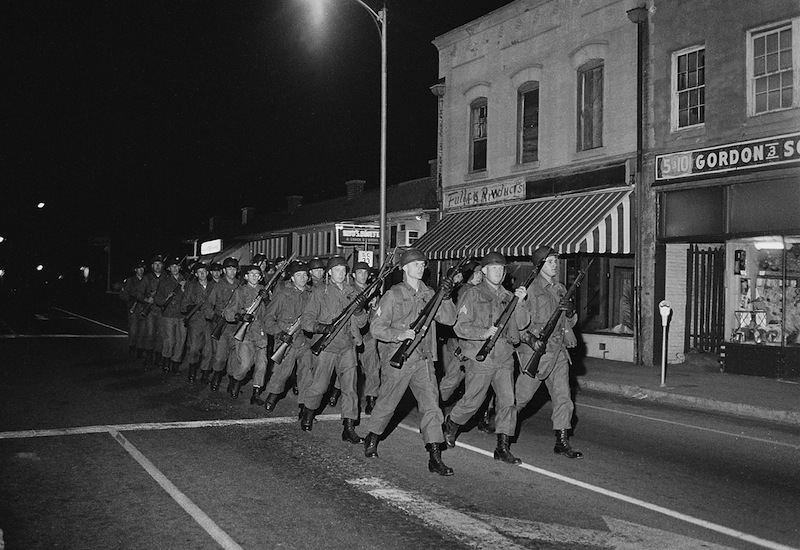
EDITOR’S NOTE: With today being the 51st anniversary of the Orangeburg Massacre, it’s important to remember this essay, first published three years ago, by historian Jack Bass who has called the events the “most unknown tragedy of the civil rights era.” This essay is a summary of events by Bass from the S.C. Encyclopedia. Republished with permission.
By Jack Bass | On the night of Feb. 8, 1968, police gunfire left three young black men dying and twenty-seven wounded on the campus of South Carolina State College in Orangeburg. Exactly thirty-three years later, Governor Jim Hodges addressed an overflow crowd there in the Martin Luther King, Jr. Auditorium, referring directly to the “Orangeburg Massacre”—an identifying term for the event that had been controversial—and called what happened “a great tragedy for our state.”

The audience that day included eight men in their fifties—including a clergyman, a college professor, and a retired army lieutenant colonel—who had been shot that fateful night. For the first time they were included in the annual memorial service to the three students who died—Samuel Hammond, Delano Middleton, and Henry Smith. Their deaths, more than two years before the gunfire by Ohio National Guardsmen that killed four on the campus of Kent State University, marked the first such tragedy on any American college campus.
The shooting occurred after three nights of escalating racial tension over efforts by South Carolina State students and others to desegregate the All Star Bowling Lanes. On Monday night, Jan. 29, 1968, six black students entered the bowling alley. As planned, one of the college’s two white students had preceded them and was bowling when they entered. When the others asked for bowling lanes, they were told the bowling alley was private. Pointing to the white student, they asked how the bowling alley could be private when a schoolmate was bowling and he was not a member. The white student was ordered to stop bowling, and the students were told to leave. A week later, more than a dozen students returned to the bowling alley. This time bowling alley operator Harry Floyd called the police. The police chief and city administrator evaluated the situation, determined it was explosive, and ordered the alley to close for the night.
The next night at the bowling alley, some students voluntarily had themselves arrested in order to contest trespass charges. As volunteers were escorted to patrol cars, another student told hundreds attending a movie about the arrests. Students poured out of the auditorium and headed downtown. Highway patrolmen carrying riot batons joined local police in front of the bowling alley. One officer reported that he swung his baton and hit someone after a caustic liquid was thrown in his face. Other officers quickly joined in. By evening’s end, a policeman and ten students received hospital treatment for injuries, and others were treated at the campus infirmary.
Students returning to campus vented their anger on white-owned businesses, throwing bricks, rocks, and sticks of firewood. In the wake of major urban riots the previous year across America, the state responded as though it were a major civil disorder. Total insurance claims for damages that night, however, amounted to less than $5,000.
National Guard called to scene
On Wednesday, Gov. Robert E. McNair called in 250 National Guardsmen and additional highway patrolmen. The day began with city officials meeting with students and staff in the campus auditorium. Students hooted when officials were unable to answer specific grievances. Official attention soon focused on twenty-three-year-old Cleveland Sellers, who had returned to his native South Carolina as third-ranking officer in the Student Nonviolent Coordinating Committee (SNCC) after several years on the front lines of civil rights struggle in Alabama and Mississippi. Frustrated students that night pelted passing cars, and police blockaded the highway. Rumors of “black power” threats spread, merchants armed themselves, and tension continued to mount. Sellers told a reporter Thursday afternoon, “Everyone is looking for a scapegoat.”
The shooting occurred at 10:38 that night, after students lit a bonfire and a patrolman advancing to protect firemen was knocked down by a thrown object that bloodied his face. About five minutes later, as taunting students who had retreated into the campus interior headed back toward the bonfire, a patrolman fired a carbine into the air, intended as warning shots. Instead, it triggered a fusillade of police gunfire. The Associated Press misreported the episode as “a heavy exchange of gunfire,” but evidence later revealed that while some objects were thrown at police, there was no exchange of gunfire. The students were unarmed. Of 66 patrolmen on the scene, nine later told Federal Bureau of Investigation agents they had fired at the students after hearing shots. Some fired more than once. Eight fired riot guns, short-barrel shotguns designed to disperse a crowd or mob, not to maim or kill. The ammunition issued for the riot guns was lethal buckshot, shells used by deer hunters that contain nine to twelve pellets as large as .38 caliber pistol slugs. A ninth patrolman said he fired his service revolver six times as “a spontaneous reaction to the situation,” and at least one city policeman fired a shotgun. The gunfire lasted at least eight to ten seconds. No National Guardsmen fired weapons.
When the fire truck arrived to put out the bonfire, Sellers left a room on the campus to see what was happening. He was shot in the armpit. After being identified at the hospital by the sheriff’s only black deputy, he was taken to the courthouse, charged with a variety of crimes, and speedily taken to the state penitentiary in Columbia.
At a noon press conference the next day in Columbia, Gov. McNair called it “one of the saddest days in the history of South Carolina” and expressed concern that the state’s “reputation for racial harmony has been blemished.” With his South Carolina Law Enforcement Division (SLED) chief beside him, McNair made four factual misstatements of what happened, including an assertion that the shooting took place “off the campus.” (Later, in his final address to the legislature, McNair referred to what happened at Orangeburg as “a scar on our state’s conscience.”)
Months that followed
In the months that followed the shooting, after a grand jury refused to indict the nine patrolmen, U.S. Attorney General Ramsey Clark tried the patrolmen on criminal charges. A jury took less than two hours to acquit the patrolmen on grounds of self-defense. In an interview years later, one of those defendants, Joseph Howard “Red” Lanier, Jr., after serving as Highway Patrol commander, expressed remorse about what had happened and acknowledged that the patrolmen had been “poorly trained.”
Meanwhile Sellers was convicted in 1970 of “riot” for his actions at the bowling alley on Tuesday and served seven months in minimum security. He went on to earn a doctorate from the University of North Carolina at Greensboro to go with a master’s degree from Harvard he received before going to prison. He later returned to South Carolina, and in 1993 the University of South Carolina hired Sellers as director for its program in African American studies. [Editor’s note: Sellers has retired as president of Voorhees College in Denmark, S.C.
- Have a comment? Send to: feedback@statehousereport.com..
FEEDBACK
FEEDBACK: Go for solutions on pay equity, not excuses
To the editor:
![]() You have to look hard to find women who oppose advancing pay equity – in this case all the way to a Washington D.C.-based group backed by corporate interests. The conservative Independent Women’s Forum referenced in the story espouses the extreme views supported by their funders, which include Koch Industries (example: the group opposed the Violence Against Women Act on the premise that “wives instigate violence, including severe violence, against husbands more often than husbands do against wives.”)
You have to look hard to find women who oppose advancing pay equity – in this case all the way to a Washington D.C.-based group backed by corporate interests. The conservative Independent Women’s Forum referenced in the story espouses the extreme views supported by their funders, which include Koch Industries (example: the group opposed the Violence Against Women Act on the premise that “wives instigate violence, including severe violence, against husbands more often than husbands do against wives.”)
Studies show that equally paying employees who work the same jobs and hours will help close persistent gender and racial wage gaps, lift families out of poverty and boost the economy. That’s why pay equity proposals enjoy bipartisan support in South Carolina – not, as Ms. [Carrie] Lukas suggests, because people feel it is “dangerous” to oppose them. Perhaps her special interest group should think harder of solutions instead of excuses.
— S.C. Rep. Mandy Powers Norrell, D-Lancaster
At least Trump trying to do something
To the editor:
 I am writing as a Ted Cruz supporter. I did not want Donald Trump (the campaigner) to be my president. [Saul: “Trump is tearing apart the heart of our society”]
I am writing as a Ted Cruz supporter. I did not want Donald Trump (the campaigner) to be my president. [Saul: “Trump is tearing apart the heart of our society”]
I voted for Gary Johnson. That said, the choice between DJT and HRC was clear, and the American people got it right. Hillary was, is and always will a self-serving politician.
I think Trump is more a symptom of many years of our elected politicians ignoring the great middle of our country in favor of the radical fringes of both sides, but mostly leaning left, as the media and entertainment industries do. At least Trump is trying to do something about the border, which IS a crisis. At least we have now two more conservative Supreme Court justices (what a sham the Kavanaugh hearings were…no propriety or good taste from the democrats there). This problem only goes away with term limits for all congressmen.
— Phil Tackett, Summerville, S.C.
Need to get rid of Trump
To the editor:
So refreshing to see an intelligent argument for why we need to get rid of this President. It won’t be too soon for most of us who have a brain! So disappointed in Republicans for being so spineless!
— Nora Kresch, Beaufort, S.C.
Newspapers losing their value
To the editor:
Thank you, Mr. Brack. You are so correct. The State Newspaper is only good for the obituaries. Then you can quit reading it.
— Molly Nettles, Camden, S.C.
Editor’s Note: To be clear, we were focusing on the need for editorial pages to be robust in a recent column, although some newspapers in S.C. are shells of their former selves.
Send us your thoughts … or rants
We love hearing from our readers and encourage you to share your opinions. But you’ve got to provide us with contact information so we can verify your letters. Letters to the editor are published weekly. We reserve the right to edit for length and clarity. Comments are limited to 250 words or less. Please include your name and contact information.
- Send your letters or comments to: feedback@statehousereport.com
MYSTERY PHOTO: This should be an easy one
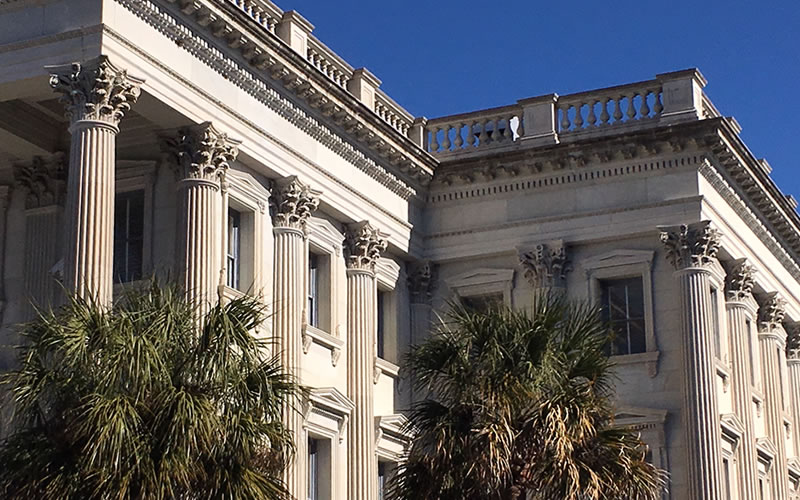
No clues provided on this one. What and where is it? Send your guess to feedback@statehousereport.com. And don’t forget to include your name and the town in which you live.
Our previous Mystery Photo
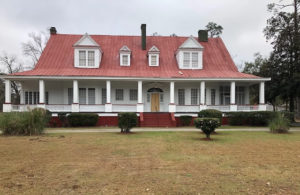 Our Feb. 1 mystery, “Lowcountry building might be tough to identify,” was sent in by reader Frank Bouknight of Summerville. And boy, was it tough. Only one person, Jay Altman of Columbia, got it right, correctly identifying the building as being part of the Cummins Memorial Theological Seminary.
Our Feb. 1 mystery, “Lowcountry building might be tough to identify,” was sent in by reader Frank Bouknight of Summerville. And boy, was it tough. Only one person, Jay Altman of Columbia, got it right, correctly identifying the building as being part of the Cummins Memorial Theological Seminary.
Cheryl Smithem of Summerville correctly identified the photo in our sister publication, Charleston Currents. “I’ve seen this building all my life,” she wrote us. She shared that the seminary “was founded and formed in 1876 by the Rev. Peter Fayssoux Stevens. The purpose of the school was to train and educate freemen who were former slaves and sons of former slaves for the ministry of the Reformed Episcopal Church in the South. Through the succession of many leaders, the school became formally charted as a seminary in 1939 and changed its name to the Cummins Memorial Theological Seminary.”
Good work Frank and Jay!!
- Send us a mystery: If you have a photo that you believe will stump readers, send it along (but make sure to tell us what it is because it may stump us too!) Send to: feedback@statehousereport.com and mark it as a photo submission. Thanks.
S.C. ENCYCLOPEDIA
HISTORY: Vertamae Grosvenor
S.C. Encyclopedia | Vertamae Grosvenor was born to Frank and Clara Smart on April 4, 1938, in Fairfax, Allendale County. When she was ten, her family moved from the South Carolina Lowcountry, where Grosvenor spoke Gullah, to Philadelphia. By that time, she had developed an interest in food and cooking. After high school, Grosvenor went to Paris and traveled throughout Europe. She has been married twice and has two daughters.
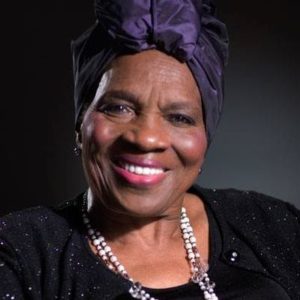
A woman with varied interests, Grosvenor is best known as a writer and culinary anthropologist. During her travels abroad, she became interested in the African diaspora and how African foods and recipes traveled and changed as a result of it. Her first book, Vibration Cooking; or, The Travel Notes of a Geechee Girl, was published in 1970. It is a unique combination of recipes, reminiscences, and stories from family and friends. It shows Grosvenor’s strong devotion to these people as well as her growing interest in Afro-Atlantic foodways and culinary history. This interest has been further developed in Vertamae Cooks in the Americas’ Family Kitchen (1996) and Vertamae Cooks Again (1999), and in her cooking series, Seasonings, for public radio and Americas’ Family Kitchen on the Public Broadcasting Service (PBS).
Grosvenor’s other interests have led her in several directions. She has written for such varied publications as Ebony, the New York Times, the Village Voice, Essence, Life, and the Washington Post. In 1972 she published a history of black servitude in the United States and England, Thursdays and Every Other Sunday Off: A Domestic Rap. She has also been an editor for Elan Magazine and served on the Literary Task Force for the South Carolina Arts Commission. She has lectured throughout the Americas, catered celebrity affairs, and been a guest on many television shows. She has acted on Broadway and in the movies Daughters of the Dust and Beloved. She is perhaps best known, however, as a regular contributor to National Public Radio (where she has been a commentator on All Things Considered ) and PBS.
Throughout her career, Grosvenor has continued her loving explorations of lowcountry culture. She was a writer in residence for the Penn Center on St. Helena Island and worked on the National Geographic Explorer documentary, “Gullah.” She won an Emmy for “Growing Up Gullah,” a story for the Washington, D.C., program, Capitol Edition. She has combined her love of theater and cooking in the folk opera, Nyam, which is Gullah for “eat.” She died in 2018.
— Excerpted from an entry by Kathy A. Campbell. This entry may not have been updated since 2006. To read more about this or 2,000 other entries about South Carolina, check out The South Carolina Encyclopedia, published in 2006 by USC Press. (Information used by permission.)
ABOUT STATEHOUSE REPORT
Statehouse Report, founded in 2001 as a weekly legislative forecast that informs readers about what is going to happen in South Carolina politics and policy, is provided to you at no charge every Friday.
- Editor and publisher: Andy Brack, 843.670.3996
- Statehouse correspondent: Lindsay Street
More
- Mailing address: Send inquiries by mail to: P.O. Box 22261, Charleston, SC 29407
- Subscriptions are free: Click to subscribe.
- We hope you’ll keep receiving the great news and information from Statehouse Report, but if you need to unsubscribe, go to the bottom of the weekly email issue and follow the instructions.
- © 2019, Statehouse Report. All rights reserved.


